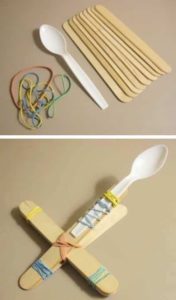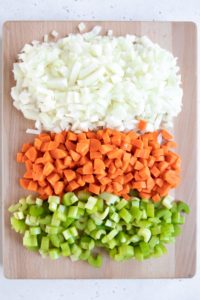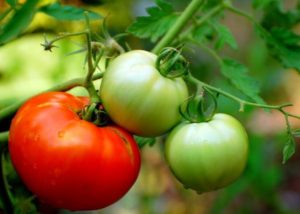Home Insteading With Cooperative Extension (Week 1)
go.ncsu.edu/readext?664555
en Español / em Português
El inglés es el idioma de control de esta página. En la medida en que haya algún conflicto entre la traducción al inglés y la traducción, el inglés prevalece.
Al hacer clic en el enlace de traducción se activa un servicio de traducción gratuito para convertir la página al español. Al igual que con cualquier traducción por Internet, la conversión no es sensible al contexto y puede que no traduzca el texto en su significado original. NC State Extension no garantiza la exactitud del texto traducido. Por favor, tenga en cuenta que algunas aplicaciones y/o servicios pueden no funcionar como se espera cuando se traducen.
Português
Inglês é o idioma de controle desta página. Na medida que haja algum conflito entre o texto original em Inglês e a tradução, o Inglês prevalece.
Ao clicar no link de tradução, um serviço gratuito de tradução será ativado para converter a página para o Português. Como em qualquer tradução pela internet, a conversão não é sensivel ao contexto e pode não ocorrer a tradução para o significado orginal. O serviço de Extensão da Carolina do Norte (NC State Extension) não garante a exatidão do texto traduzido. Por favor, observe que algumas funções ou serviços podem não funcionar como esperado após a tradução.
English
English is the controlling language of this page. To the extent there is any conflict between the English text and the translation, English controls.
Clicking on the translation link activates a free translation service to convert the page to Spanish. As with any Internet translation, the conversion is not context-sensitive and may not translate the text to its original meaning. NC State Extension does not guarantee the accuracy of the translated text. Please note that some applications and/or services may not function as expected when translated.
Collapse ▲Chowan County Cooperative Extension is launching a new series called Home Insteading. We’re focusing on educational topics that encourage at-home learning and hands-on activity. For more information about our local program and how to connect, visit chowan.ces.ncsu.edu.
4-H AT HOME – Chowan County 4-H STEM Challenge: Marshmallow Catapult
Camaryn Byrum, Chowan County 4-H Agent
Have some free time at home? Try out this engaging and educational 4-H STEM activity. Complete the STEM experiment/activity below. E-mail Camaryn Byrum a picture of you completing the given task. A $5 credit will be applied toward any 2020 Chowan County Summer Fun Program that you plan to attend. A new challenge will be published each week in the newspaper. Camaryn Byrum can be reached at cibyrum@ncsu.edu
Supplies Needed
- 9 – Craft/ popsicle sticks
- 6 – Rubber bands
- 1 – Plastic spoon
- 1- Marshmallow
Directions
Design and construct a catapult using only the supplies above. Once you have constructed your catapult, see how far your marshmallow will launch. Try revising your catapult to launch your marshmallow even farther.
Reflection (discuss these questions with a parent, guardian, or sibling):
- How far did your catapult launch your marshmallow on the first try?
- Once you revised your catapult, did your marshmallow travel a longer or shorter distance?
- Name one additional item that you would add to the supply list that could help you construct your catapult to work even better.

FAMILY & CONSUMER SCIENCE AT HOME – Make Your Own Mirepoix
Mary Morris, Chowan County Family & Consumer Science Agent
It is so much cheaper to buy whole carrots, a bag of onions and a bunch of celery than buying them already cut up. Have you ever thrown out rotting vegetables because you didn’t use them fast enough? In this day and time we need to start thinking about how we can save money and cut down on waste. If you’re confined to the house you can work on saving yourself time and money by doing a little prep work by making your own mirepoix.
Mirepoix (meer-PWAH) is the flavor base for stocks, soups, stews and sauces. It’s so nice to already have frozen portions cut up and ready to use. So get to chopping.
Directions
Chop 2 cups carrots (large carrots not baby carrots), 2 cups celery, 3 cups onions.
The finer you chop the quicker they cook, just as long as they are all chopped about the same size you are good.
Divide into 1-2 cup portions in freezer bags or food saver bags. Throw them in the freezer, pull out as needed.
To use mirepoix cook the mixture in olive oil over medium-low heat just until vegetables are translucent. If you’re adding meat, you can sear the meat first and use that fat to cook the onion, carrots, and celery. You don’t want to brown your vegetables.
When your mirepoix is finished, you’ll have a foundation you can build on with the other ingredients that will flavor your stocks, sauces, vegetable, meat and bean dishes.

HORTICULTURE AT HOME – Planning For A Summer Garden
Katy Shook, Area Horticulture Agent
Thinking about starting a garden? Late April through early May is a great time to plant warm-season vegetables like tomatoes, cucumbers, and peppers. Don’t let mother nature trick you into planting too early.
Here are some tips to keep in mind:
-
- Select a sunny spot. Most vegetables need 6-8 hours of full sun a day.
- Start small. Managing all those plants can get discouraging.
- Place the garden near a water source. Gardens need at least 1 inch of water per week.
- Don’t plant in a wet spot. If location, access, or soil is an issue, consider container gardening instead.
- Troubleshoot early. Weeds, insects, and disease are best managed if you can hand pick and destroy them early.
- Have fun. N.C. Cooperative Extension offers great resources to help gardeners decide what, how much, and when to grow. Check out the family-friendly Vegetable Planting Guide at go.ncsu.edu/plantveggies ; and the fun-to-make-at-home vegetable planting wheel at http://go.ncsu.edu/veggiewheel
Early Bird Tip – If you are eager to plant something before the last frost, make sure you select a cool-season crop like lettuce, carrots, or broccoli.




